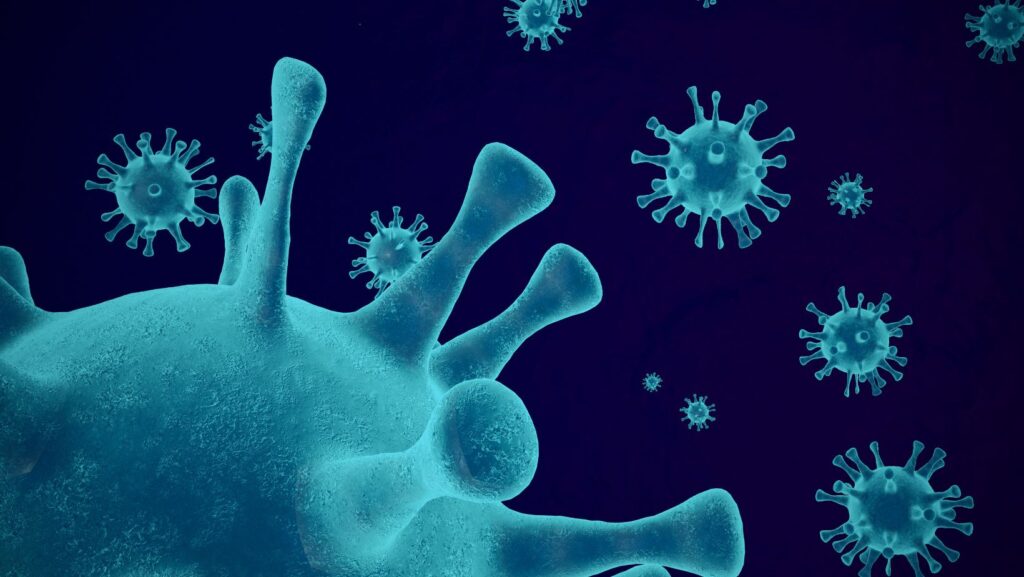Stay healthy and beware of diseases that come with the rainy season. High humidity in the air promotes the spread of viruses and bacteria, which can enter our respiratory systems and increase the risk of illness. Respiratory infections may cause symptoms such as fever, nasal congestion, runny nose, sneezing, coughing, and sore throat.
Aside from the common cold, there are several other diseases commonly seen during the rainy season, including:
Respiratory Diseases
These are primarily caused by exposure to airborne viruses and bacteria, which can easily spread through contaminated surfaces or contact with mucus.
- Common Cold: Found year-round, especially during the rainy season. It is caused by over 200 different pathogens and generally resolves within 3–4 days with proper care.
- Influenza (Flu): Caused by the influenza virus, which can be classified into types A, B, and C. Types A and B tend to cause more severe illness, while type C is typically milder. Symptoms include high fever, headache, body aches, and respiratory issues such as a runny nose and cough. Severe cases may lead to pneumonia, breathing difficulties, and even death.
- Pneumonia: Caused by infections in the lower respiratory tract, typically following the flu. Common culprits include bacteria like Streptococcus pneumoniae or pneumococcus.
So, during rainy season, it is best to quickly go home, get yourself warmed up, and enjoy some entertainment from the comfort of your own home. What is better than to hop onto m88 thailand and check the best odds on the market!
Water and Foodborne Diseases
These illnesses are caused by consuming contaminated food or water, leading to gastrointestinal infections.
- Acute Diarrhea: Results from ingesting contaminated food or drinks. Poor hygiene, such as unclean hands, can exacerbate the spread. Symptoms include watery stools three or more times a day and possible vomiting.
- Dysentery: Caused by bacteria or amoebas found in contaminated food or water. Symptoms include frequent bloody or mucus-laden stools and fever.
- Food Poisoning: Arises from ingesting food or drink contaminated with bacteria or improperly cooked foods, leading to symptoms like nausea, diarrhea, abdominal pain, and fever.
- Hepatitis: An inflammation of the liver, commonly caused by viral infections like hepatitis A, B, C, D, and E, though alcohol consumption or certain medications may also be responsible.
Mosquito-Borne Diseases
Diseases transmitted by mosquitoes, such as dengue, chikungunya, and malaria, tend to peak during the rainy season.
- Dengue Fever: Caused by the dengue virus and spread by Aedes mosquitoes, this is a serious public health issue during the rainy season, often leading to complications if untreated.

- Chikungunya: A mosquito-borne viral infection with symptoms similar to dengue but without plasma leakage, meaning the risk of shock is lower.
- Malaria: Transmitted by Anopheles mosquitoes, with symptoms often appearing 10–28 days after infection.
- Japanese Encephalitis (JE): Spread by Culex mosquitoes, commonly found near rice paddies. JE can cause high fever, vomiting, confusion, and in severe cases, brain inflammation and death.
- Zika Virus: Spread by Aedes mosquitoes, with symptoms that are generally mild, though severe complications can occur in pregnant women, potentially leading to birth defects like microcephaly in newborns.
Preventative Measures
Please follow these measures to prevent any possible rain-caused illnesses from happening to you:
- Wear masks and replace them when damp.
- Shower immediately upon returning home.
- Keep your nose clear with saline if you’re congested.
- Dry your hair thoroughly after washing it.
- Stay warm and avoid crowded places.
- Drink at least 1.5 liters of clean water daily.
- Rest well and exercise regularly to boost your immune system.
Infectious Diseases Transmitted Through Wounds and Skin Mucosa
Leptospirosis (Rat Fever): Leptospirosis is a zoonotic disease primarily transmitted by rodents. The bacteria are excreted through the urine of infected animals, contaminating water and moist soil. It can enter the human body through wounds, scratches, or mucous membranes of the mouth, eyes, and nose.
Conjunctivitis (Pink Eye): This condition is commonly spread through contact and may also occur in children with pre-existing conditions such as allergies. It leads to itchy eyes, which often results in frequent rubbing and subsequent infection. Parents should promptly consult a doctor if their child has pink eye and avoid using over-the-counter eye drops without medical advice.
Hand, Foot, and Mouth Disease (HFMD): HFMD is common in young children, especially during the rainy season, though it can also affect adults, usually with milder symptoms. It is caused by enteroviruses, resulting in fever, mouth sores, and blisters on the hands, feet, and body. This disease often causes concern among parents due to its contagious nature.
Skin Diseases to Watch for in the Rainy Season
Frequent rainfall increases humidity, creating an environment for fungal and bacterial growth. Some skin conditions to be cautious of include:
- Fungal Dermatitis: Characterized by itchy, red patches, often found in moist areas like the scalp, underarms, and between the toes.
- Tinea Versicolor: Round, flaky patches that differ in color, typically appearing on the trunk.

- Insect Dermatitis: Reactions to bites from mosquitoes, fleas, or other insects.
- Smelly Feet: Caused by bacterial infection of the skin, often resulting in excessive foot odor and small holes in the skin.
- Atopic Dermatitis: Red, flaky, itchy patches, commonly appearing in the elbows, knees, and neck due to weather changes.
- Athlete’s Foot: Irritated skin between the toes due to moisture exposure, sometimes accompanied by fungal or bacterial infection.
- Roseola Rash: A viral skin infection that appears mainly during winter and rainy seasons.
To avoid these skin conditions:
- Bathe as soon as you get home.
- Wear clean, dry clothing.
- Wash your hands and feet after walking through water.
- Dry your hair before bed if you’ve been caught in the rain.
- Remove potential breeding grounds for mosquitoes.
Take care of any wounds properly, and consider getting a tetanus vaccine if necessary.
